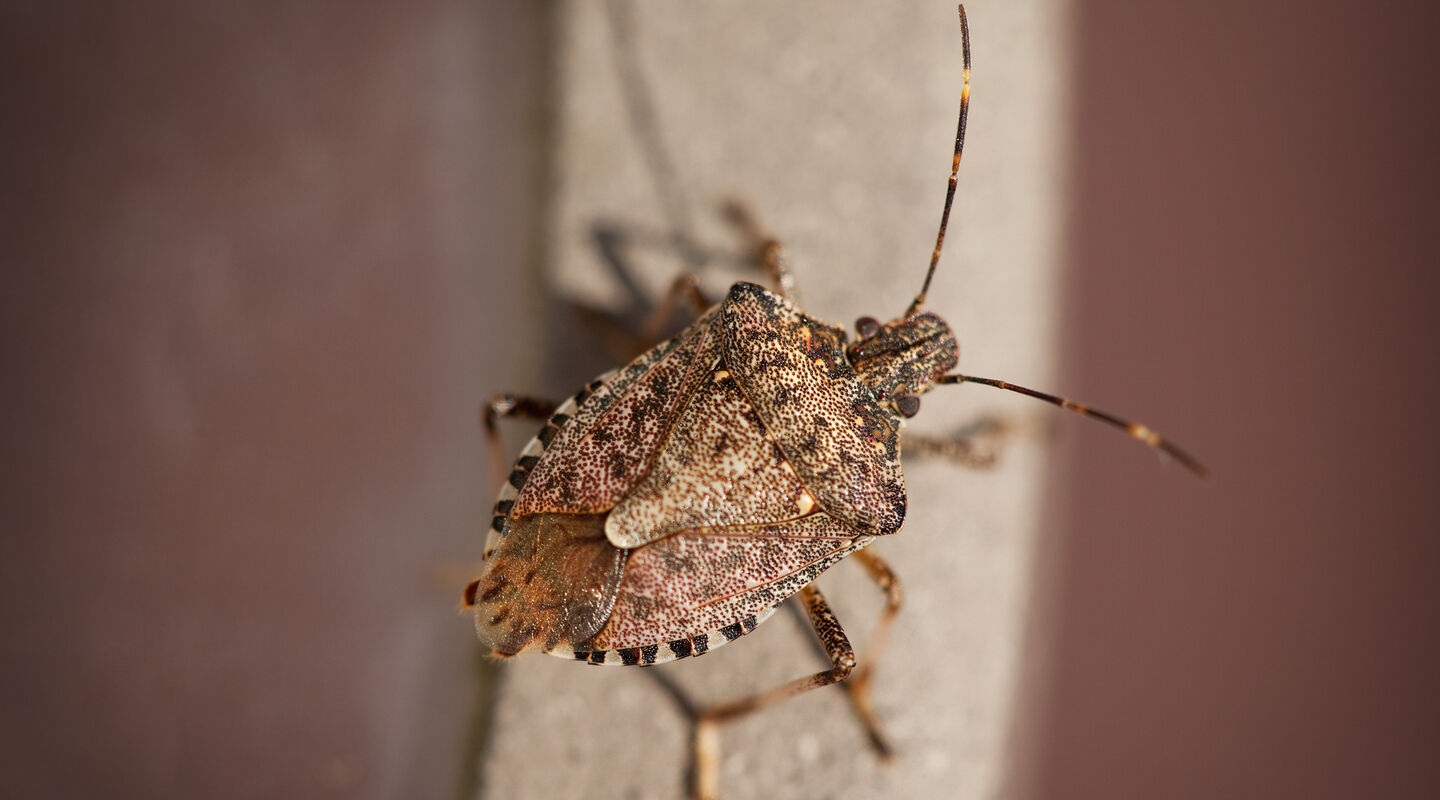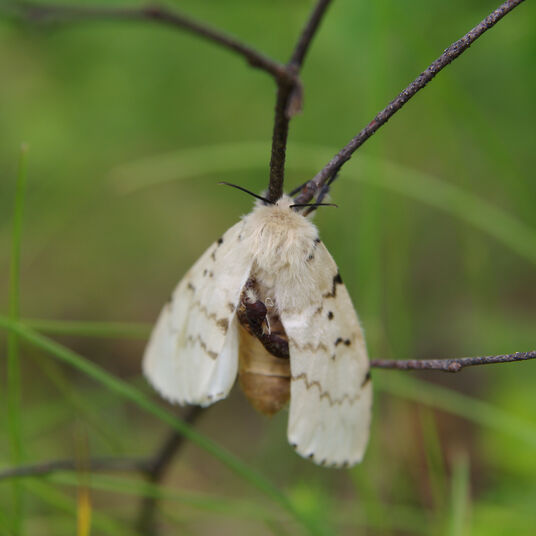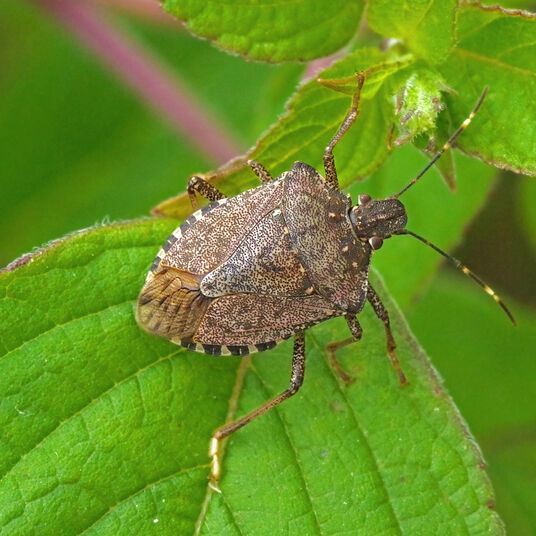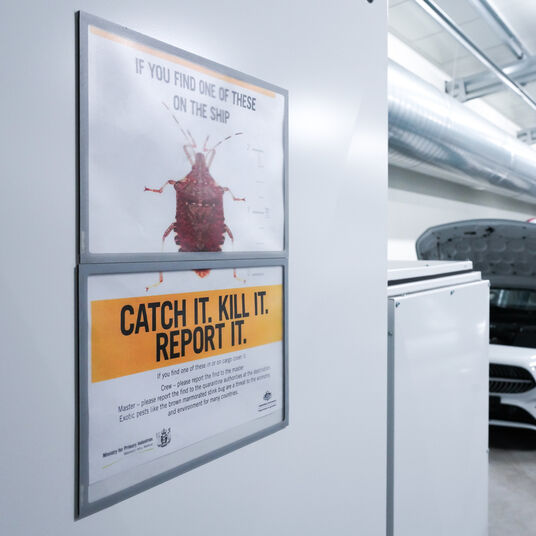Why New Zealand’s government is waging war against the stink bug
The New Zealand Ministry for Primary Industries is tackling the brown marmorated stink bug (BMSB) threat in the Port of Auckland.

It’s common knowledge that the brown marmorated stink bug (BMSB) has spent the last few years trying to hitch a ride to New Zealand – usually as a stowaway in imported vehicles.
The insect’s mission is simple: to sample the exciting vegetative delights of the land. But the committee waiting at the Port of Auckland is far from welcoming – and for good reason.
Since the BMSB snuck into the US in 1998, it has eaten its way across 40 states and become a huge threat to both fruit and vegetable crop harvests. There are serious concerns that if the bug did make its way into New Zealand, it would do something similar.
If unwanted pests or diseases get through the biosecurity net, there may be irreversible damage to the New Zealand environment and economy. Chaos can reign.Manager, Facilities and Pathways Group at the New Zealand Ministry for Primary Industries
Addressing the threat on New Zealand soil
The New Zealand Ministry for Primary Industries (MPI) has been monitoring the BMSB’s invasion plans since 2012, ramping up defences each year. In February 2018 12 live bugs were discovered in a shipment of Japanese cars by the Auckland Quarantine Team.
Since then new tightened biosecurity measures have been introduced including showing that cargo has been managed by an MPI-approved system or treated before arrival. Without this, breakbulk cargo from BMSB countries will not be discharged.New Zealand ports don’t have the treatment capability to treat large volumes of vehicles in a safe manner. As a vessel can carry more than 4,000 vehicles, it’s easy to understand how a major biosecurity backlog can occur. Ships that are flagged as potential risks go through a stringent on arrival inspection process which can take up to three hours to complete.
Cooperation needed to beat the bug
Auckland’s process is thorough, but it’s important that shipping companies also play their part. As Paul Hallett explains: “Early warnings and reporting of adverse biosecurity events through education of those involved in logistics can save a lot of grief for all parties involved. Exporters need to make themselves familiar with the biosecurity requirements of the importing country to avoid costs and delays.”
Providers of deep-sea ocean transportation such as WW Ocean have been praised by the MPI for their vigilance. “We have very much appreciated the willingness of WW Ocean to cooperate in successfully managing the biosecurity risk of cargo infested with the BMSB” says Hallett.
And it’s this close cooperation between ports and shipping companies that will help ensure that Kiwi borders stay closed to the BMSB going forward – welcome news for the country’s farming sector and wider population.


